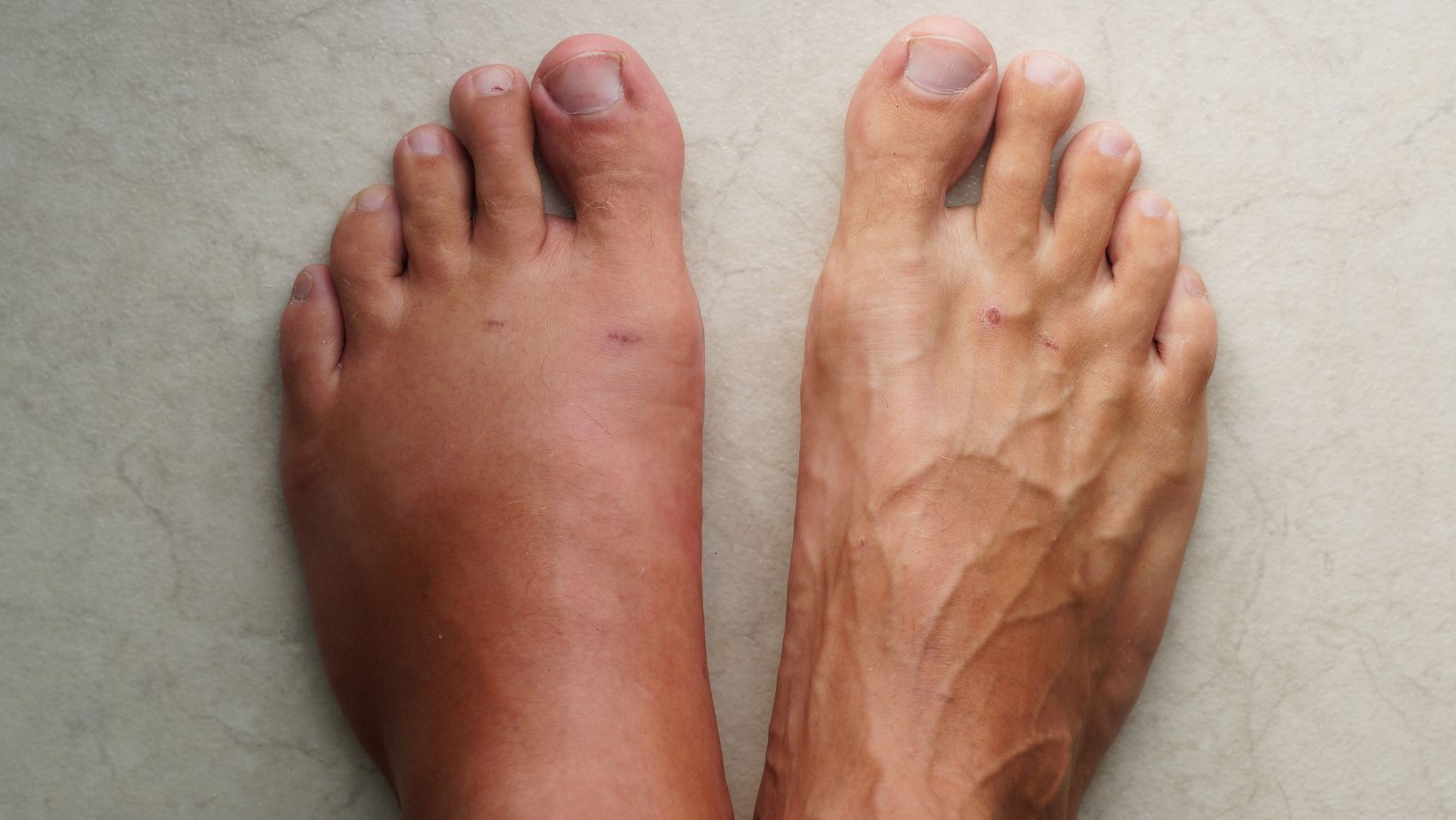Phone:
(701)814-6992
Physical address:
6296 Donnelly Plaza
Ratkeville, Bahamas.

Swollen legs can feel like a bad joke—one minute you’re strutting around, and the next, you’re sporting cankles that could rival a cartoon character. Edema isn’t just a nuisance; it can make even the simplest tasks feel like an Olympic event. But before you resign yourself to a life of compression socks and ice packs, there’s a world of herbal remedies waiting to save the day.
Edema refers to the accumulation of excess fluid in the body’s tissues, often resulting in noticeable swelling. This condition typically affects the legs and feet, leading to discomfort and mobility challenges. Several factors contribute to edema, including prolonged sitting or standing, heart conditions, renal issues, and dietary choices high in sodium.
Identifying the underlying cause of edema is crucial. Some individuals experience mild swelling during hot weather, while others might face more severe health concerns. A medical professional’s guidance often aids in determining the most effective management strategies.
Many seek relief through herbal remedies. Certain herbs, such as dandelion and ginger, possess diuretic properties and promote fluid balance. These remedies can help reduce swelling in the legs and enhance overall circulation. Valid studies indicate that natural diuretics may also support kidney function, facilitating the removal of excess fluids.
Lifestyle modifications complement herbal approaches. Maintaining hydration contributes to optimal fluid balance. Choosing an anti-inflammatory diet helps reduce inflammation, addressing one of the root causes of edema. Regular physical activity further promotes circulation, reducing the risk of fluid retention.
Monitoring symptoms provides crucial insights into the condition’s progress. Individuals should pay attention to changes in swelling patterns and discuss their findings with healthcare providers. A comprehensive approach combining lifestyle changes and herbal remedies can lead to effective edema management, ultimately improving comfort and mobility.

Edema in the legs often results from various lifestyle factors and underlying medical conditions.
Prolonged sitting or standing creates pressure in the legs, leading to fluid accumulation. High sodium diets contribute significantly, as excess salt encourages water retention. Lack of physical activity slows circulation, making it harder for the body to manage fluid balance. Obesity increases strain on the legs and can exacerbate swelling. Hot weather affects blood flow and can result in temporary swelling due to heat-induced dilation of blood vessels. Staying active, reducing salt intake, and maintaining a healthy weight can all support better fluid management.
Heart failure can impede efficient blood circulation, resulting in fluid buildup in the legs. Kidney issues directly affect fluid regulation, leading to edema when function declines. Liver disease disrupts protein production, altering fluid balance and causing swelling. Vein problems, like chronic venous insufficiency, prevent proper blood return to the heart, often resulting in swelling. Certain medications, such as those for high blood pressure, may also have edema as a side effect. Monitoring and managing these conditions is vital to reducing swelling effectively.
Various herbal remedies can help alleviate edema in legs. These natural options may offer relief without the need for pharmaceutical interventions.
Dandelion acts as a natural diuretic, promoting increased urination. By enhancing kidney function, it allows the body to eliminate excess fluid more efficiently. Consuming dandelion tea or supplements may provide a gentle method to reduce swelling. Individuals often find relief using dandelion extracts, which contain compounds that support urinary health. Regular use may show improvements within a few days.
Ginger helps improve circulation and reduce inflammation, contributing to its effectiveness in managing edema. This aromatic root contains gingerol, known for its anti-inflammatory properties. Drinking ginger tea or adding fresh ginger to meals may facilitate better blood flow. Some studies indicate that ginger can lower swelling associated with certain health conditions. Incorporating ginger into one’s diet can be a simple way to address fluid retention.
Horse chestnut contains aescin, which strengthens blood vessels and improves circulation. This herb may help reduce edema by decreasing fluid leakage from capillaries. Often used in topical creams or oral supplements, horse chestnut extracts can provide localized relief. Individuals experiencing chronic swelling in their legs may find this remedy particularly beneficial. Consistent use may lead to noticeable decreases in leg swelling.
Turmeric features curcumin, which has potent anti-inflammatory and antioxidant properties. This herb can aid in reducing inflammation related to edema. Consuming turmeric in food or as a supplement can enhance overall health while managing swelling. Some studies suggest that curcumin helps lower inflammation levels in the body, further supporting circulation. Regular intake of turmeric may effectively alleviate discomfort associated with swollen legs.
Start with consulting a healthcare provider before trying herbal remedies for edema, especially when dealing with underlying health conditions. Understanding potential interactions between herbs and medications is crucial for safe usage.
Choose high-quality herbal products to ensure effectiveness and safety. Look for reputable brands that conduct third-party testing. This verification assures the absence of contaminants and guarantees ingredient integrity.
Follow recommended dosages provided on product labels or as advised by a healthcare professional. Overusing herbal remedies can lead to side effects and negative health impacts. Gradually introduce one herb at a time to monitor reactions or side effects effectively.
Consider possible allergy risks associated with specific herbs. Some individuals may experience allergic responses, so starting with small amounts allows for safer observation. Track any changes in swelling or discomfort to assess the remedies’ effectiveness over time.
Maintain hydration to enhance the body’s ability to process and eliminate excess fluids. Drinking sufficient water complements the diuretic effects of herbs, promoting better results. Adjust lifestyle choices alongside herbal use for optimal outcomes.
Regular follow-up with a healthcare provider is essential, especially when symptoms persist despite using herbal remedies. Ongoing monitoring helps ensure that treatment remains effective and appropriate.
Herbal remedies offer a promising avenue for those seeking relief from edema in the legs. By incorporating natural options like dandelion and ginger into their routines, individuals may experience reduced swelling and improved circulation.
Alongside these remedies, adopting a healthy lifestyle can further enhance results. Staying hydrated and maintaining an anti-inflammatory diet play crucial roles in managing fluid retention.
It’s vital to approach these remedies with care. Consulting a healthcare provider ensures safety and effectiveness, especially for those with underlying health conditions. With a comprehensive strategy that combines herbal solutions and lifestyle changes, individuals can find greater comfort and mobility in their daily lives.